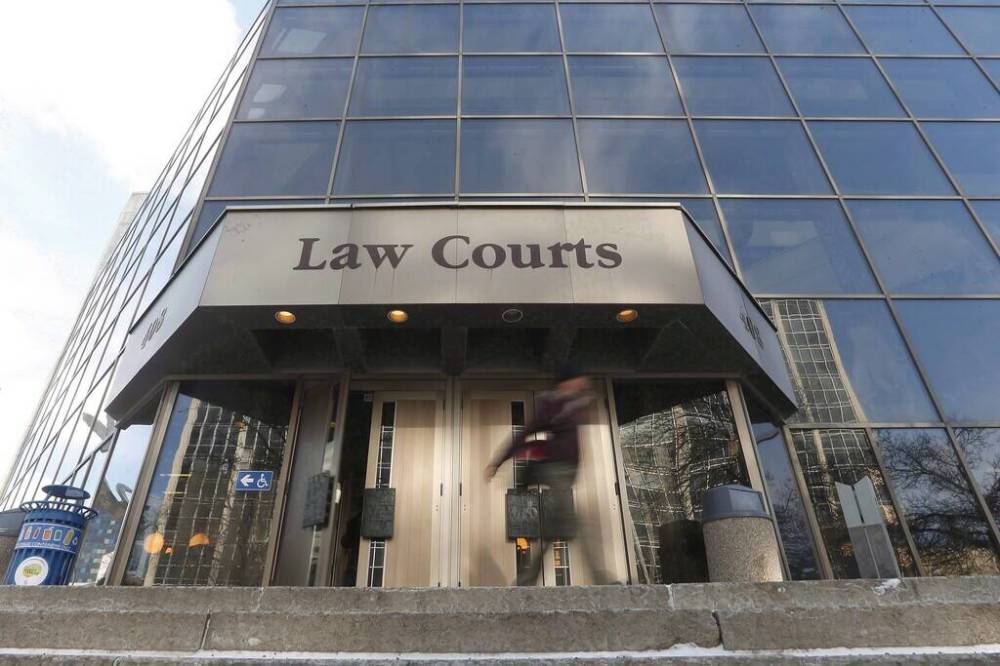First Nations police did as required under fire: inquest judge
Advertisement
Read this article for free:
or
Already have an account? Log in here »
To continue reading, please subscribe:
Monthly Digital Subscription
$0 for the first 4 weeks*
- Enjoy unlimited reading on winnipegfreepress.com
- Read the E-Edition, our digital replica newspaper
- Access News Break, our award-winning app
- Play interactive puzzles
*No charge for 4 weeks then price increases to the regular rate of $19.00 plus GST every four weeks. Offer available to new and qualified returning subscribers only. Cancel any time.
Monthly Digital Subscription
$4.75/week*
- Enjoy unlimited reading on winnipegfreepress.com
- Read the E-Edition, our digital replica newspaper
- Access News Break, our award-winning app
- Play interactive puzzles
*Billed as $19 plus GST every four weeks. Cancel any time.
To continue reading, please subscribe:
Add Free Press access to your Brandon Sun subscription for only an additional
$1 for the first 4 weeks*
*Your next subscription payment will increase by $1.00 and you will be charged $16.99 plus GST for four weeks. After four weeks, your payment will increase to $23.99 plus GST every four weeks.
Read unlimited articles for free today:
or
Already have an account? Log in here »
Hey there, time traveller!
This article was published 03/08/2022 (1226 days ago), so information in it may no longer be current.
Manitoba First Nations Police Service constables who shot and killed an armed 23-year-old man at Long Plain First Nation in 2019 did what they were trained and required to do, a provincial court judge has found.
In June, over five days in Portage la Prairie, Judge Shauna Hewitt-Michta presided over an inquest into the death of Benjiman David Richard, as mandated by legislation when a peace officer uses deadly force. She issued her report July 27.
On April 2, 2019, three MFNPS officers attended a home on the First Nation adjacent to Portage because Richard was behaving aggressively toward his mother and discharging a gun, the judge wrote.

JOHN WOODS / THE CANADIAN PRESS FILES
Judge Shauna Hewitt-Michta said the evidence in the case was neither complicated nor controversial, and although “there is room to learn from what happened,” the judge was satisfied the officers did what they had to in response to imminent threat.
As the officers approached the house from different positions, Richard fired a .22-calibre rifle at Const. Cindy Prince as she proceeded up the driveway, shattering the rear passenger window of her police car.
Richard tracked her to the rear of the home, where he again fired in her direction, Hewitt-Michta said.
Two constables, Tyler Delaronde and Billy-Jack West, shot back at Richard with their carbines. The suspect was later pronounced dead at the scene by a senior paramedic.
Hewitt-Michta said the evidence in the case was neither complicated nor controversial, and although “there is room to learn from what happened,” the judge was satisfied the officers did what they had to in response to imminent threat.
She declined to make formal recommendations in her report, instead making observations on the importance of adequate police resources, including: high-quality communications technology; the advantage of real-time information during critical incidents; and the value of regular, reality-based tactical and use-of-force training.
Hewitt-Michta said the detachment only had five officers in 2019, and at the time of the incident, there were only three able to respond because the call for service coincided with shift change. She noted having more officers available means more options for the tactical response to dangerous calls.
The judge also observed there was deficient cellphone and radio reception at the First Nation at the time, which appears to have contributed to the incident. She said it’s vital for the province to ensure police and emergency responders have the highest-quality communications technology.
Prince seemingly had inadequate reception, and testified she did not hear warnings from the other officers, then misidentified an SUV at the scene as a police vehicle — all of which likely contributed to her turning her MFNPS vehicle onto the driveway, triggering the eventual shooting, Hewitt-Michta wrote.
The judge noted Richard was not well-known to police, and he had suffered the traumatic losses of his father, a close cousin and an uncle in the years leading up to his death.
“Richard felt these losses deeply and, unfortunately, turned increasingly to drugs and alcohol, which brought him into contact with negative associates. Family witnessed changes in his personality, behaviour and mental wellness leading up to and including the day of his passing,” the judge wrote, noting Richard was under the influence of alcohol and cannabis when he died.
The judge extended her sympathy to family and friends.
“Benjiman Richard’s final moments do not reflect or change the gentle soul they knew and will love forevermore,” she wrote.
erik.pindera@freepress.mb.ca
Inquest report: Benjiman Richard

Erik Pindera is a reporter for the Free Press, mostly focusing on crime and justice. The born-and-bred Winnipegger attended Red River College Polytechnic, wrote for the community newspaper in Kenora, Ont. and reported on television and radio in Winnipeg before joining the Free Press in 2020. Read more about Erik.
Every piece of reporting Erik produces is reviewed by an editing team before it is posted online or published in print — part of the Free Press‘s tradition, since 1872, of producing reliable independent journalism. Read more about Free Press’s history and mandate, and learn how our newsroom operates.
Our newsroom depends on a growing audience of readers to power our journalism. If you are not a paid reader, please consider becoming a subscriber.
Our newsroom depends on its audience of readers to power our journalism. Thank you for your support.


